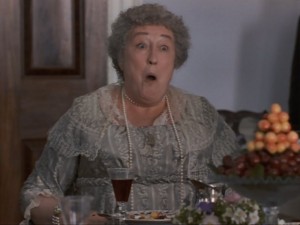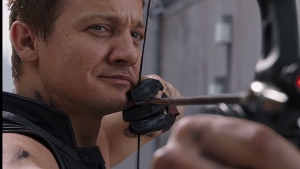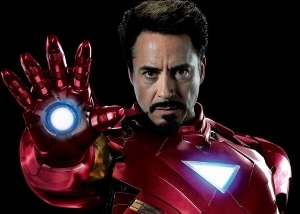For today’s post, I originally planned to write something about murdered gamekeepers in the winter of 1843/44 (this is the backdrop for my current WIP, which starts with the murder of a gamekeeper), but because that’s a rather depressing topic and because I stumbled across something last night that bowled me over, I’m going to talk about something else.
Or rather, someone.
Mr. Shakespeare.

As you might know, my day job consists of torturing teaching students at Mainz University, and at the moment I’m teaching Shakespeare’s Twelfth Night in one of my classes. One of the problems I always have with teaching a play is that the text doesn’t really come alive until it is performed. I always include a session on the Elizabethan stage, and if I have time enough, I also try to show at least excerpts from one of the many film adaptations of Shakespeare. (And I do like Trevor Nunn’s Twelfth Night with Imogen Stubbs as Viola and the dashing Toby Stephens as Orsino – even though Orsino is a bit of a wet blanket! – and – oh! – the wonderful Ben Kingsley as the fool. I haven’t yet figured out why this adaptation is set in the 19th century, but what the heck!)
So a few weeks ago I was looking for some more detailed info about The Globe, and I checked on YouTube whether I could find something featuring the inside of The Globe. Instead I found a short little film in which David Crystal and his son Ben talk about the pronunciation in Shakespeare’s time. (David Crystal is a linguist who in the eyes of academia has done the unforgivable: He has made his research topics interesting for the unwashed masses. This is generally considered to be A Very Bad Thing.) (Please note the sarcastic tone here. Personally, I think he is rather wonderful, and I heartily recommend his book The Story of English in 100 Words – fascinating stuff!) This is what I found:
(WP is supposed to embed this video, but I haven’t yet managed to embed videos on my own blog. Hmph. So I hope it works here.)
Fascinating, isn’t it?
But it gets even better! Last night I stumbled across this talk by Ben Crystal, where he talks about performing Shakespeare, about developing scenes using the invisible cues within the text itself, and, of course, about the Original Pronunciation.
It’s like… Ooooooh my! Light bulbs!
In the middle of that talk, I had to pause the film and order all of his books on Shakespeare. And then I wrote a quick e-mail to our course administration office and told them I’d like to teach a double dose of drama next term. Including a class on Shakespeare. 🙂
~~~~~
So let’s hear it: Do you have a favourite Shakespeare play? And what’s your favourite film adaptation of Shakespeare?
~~~~~
P.S.: I’m so going to model one of my future heroes on Ben Crystal! 🙂







